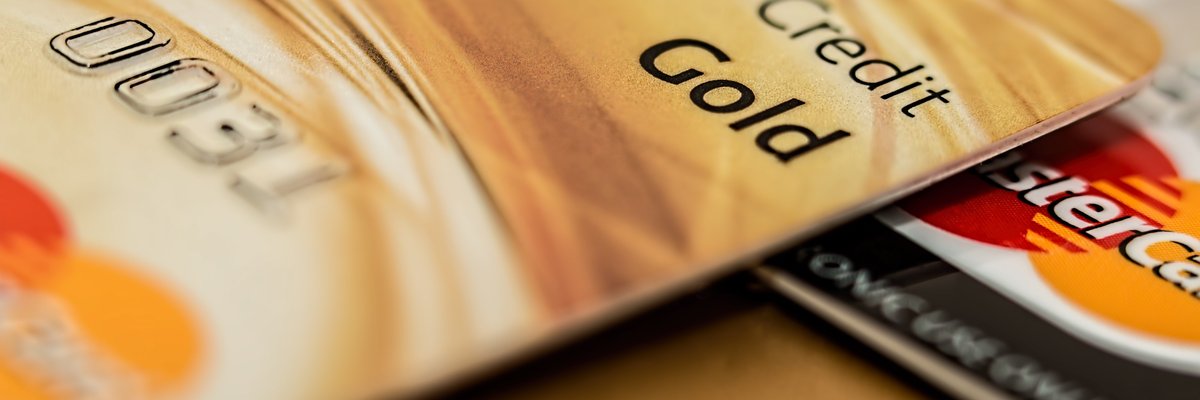2 Types of People Who Should Always Carry Credit Cards
Many financial advisors warn about the dangers of credit cards, and with good reason. If you misuse credit cards, then you can get yourself into a debt trap that's very difficult and costly to escape.
Many financial advisors warn about the dangers of credit cards, and with good reason. If you misuse credit cards, then you can get yourself into a debt trap that's very difficult and costly to escape.
But for some people, credit cards are an extremely useful tool that can both make your financial life easier and bring some valuable benefits. In particular, two types of people should always carry credit cards, because they can take advantage of credit card companies and end up with more money than they'd have by using other forms of payment.
1. People who can make money on credit card float
The most important advantage that nearly all credit cards give their customers is a grace period between when you buy something and when you have to pay your bill. Depending on the timing of your purchase and the amount of time the credit card issuer gives you between when you get your monthly statement and when you have to pay your bill, credit cards can give you as much as an extra four to six weeks before you have to make your payment. That period is sometimes known as the float.
In recent years, the float hasn't necessarily been all that valuable, because interest rates have been low. However, with rates on the rise, people are paying attention to the float again. If rates rise to 3% and you charge $5,000 while getting to wait six weeks to pay it off, then you could earn roughly $17 in extra interest -- not a ton, but a respectable amount.
The key to the grace period is that you must pay off your balance in full every month. If you don't, the grace period disappears, and interest starts accumulating whenever you make new purchases. But if you can be responsible enough to always pay your balance -- and you have a good place to earn income on your cash in a short period of time -- then credit cards can end up essentially paying you interest.
2. People who want to cash in on rewards
These days, many cards offer valuable rewards for using them for spending. These cards come in several categories:
- All-purpose cards give you a certain percentage of cash back for any purchase you make using the card, regardless of what you buy with it.
- Specialty rewards cards target specific categories of purchases, giving you a higher cash-back percentage if you spend within that category.
- Some credit cards have rotating categories that only apply for a limited period, switching to different categories in the future.
- Rather than getting cash back, some cards offer airline miles, hotel room loyalty points, or other travel-related rewards that can give you free trips or discounts on valuable services.
There are a few things that you need to consider when using credit cards that focus on rewards. First, as with those seeking to profit from the float, rewards cards work best when you don't carry a balance. Otherwise, the interest charges you'll have to pay can outweigh the value of whatever rewards the card offers.
In addition, it's important to look at whether the rewards card you're interested in using has an annual fee. If the value of the rewards greatly exceeds what you'll pay in annual fees, then the card can still be a good deal for the customer. However, if you don't spend enough to justify paying the fee, then you could be better off using a card that offers fewer rewards but does so without charging any annual fees at all.
Finally, be sure to look at the terms and conditions of the rewards cards you want. For instance, some cards put limits on how much you can spend and receive a maximum percentage of cash back. If you go over those limits, then the rewards percentage drops to a lower level or disappears entirely. That doesn't necessarily make the card a bad deal, but it does factor into your decision about whether or not the card is worth it.
Be smart with your cards
If you can't control your spending or can't pay off your cards each month, then credit cards are generally a bad idea. But if you're the type of person who can look to profit from credit cards on what you already spend, then these ideas can make carrying the right credit cards a smart move.
Our Research Expert
We're firm believers in the Golden Rule, which is why editorial opinions are ours alone and have not been previously reviewed, approved, or endorsed by included advertisers. Motley Fool Money does not cover all offers on the market. Motley Fool Money is 100% owned and operated by The Motley Fool. Our knowledgeable team of personal finance editors and analysts are employed by The Motley Fool and held to the same set of publishing standards and editorial integrity while maintaining professional separation from the analysts and editors on other Motley Fool brands. Terms may apply to offers listed on this page.



